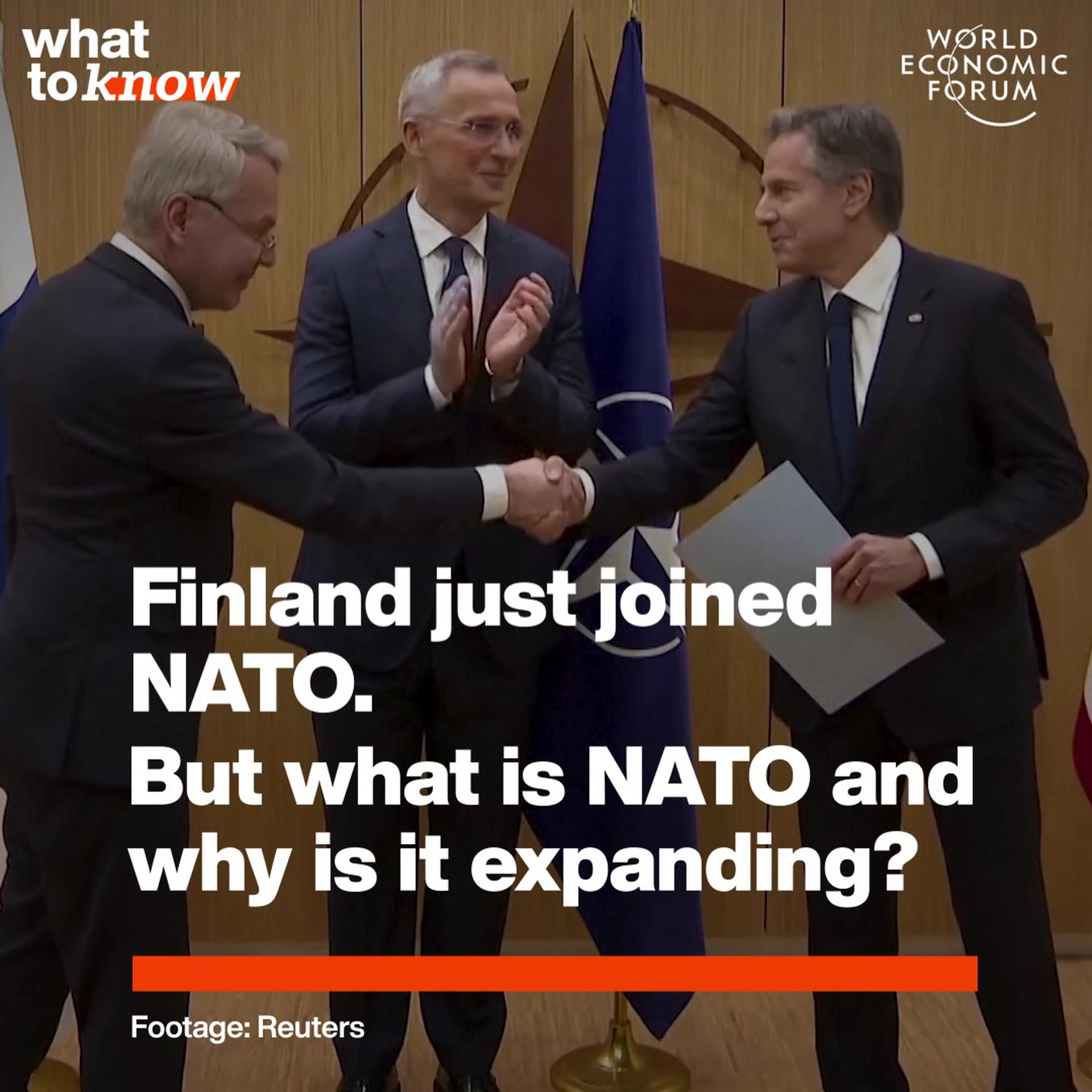Redefining Europe's Security Agenda

Image: Ciaran McCrickard

Get involved with our crowdsourced digital platform to deliver impact at scale
Stay up to date:
International Security
“The list of threats from a European context are all coming together,” said Robin Niblett, referring to challenges involving Russia, the Middle East, refugees, immigration, Brexit, terrorist attacks and a United States president-elect who has called the NATO alliance “obsolete”.
Although NATO Secretary-General Jens Stoltenberg acknowledges that, like all institutions, NATO “needs to adapt to the new security environment”, he also points out that it is “the most successful military alliance in history.”
Reasons for this success, he says, include its strong transatlantic partners – along with increased European defence spending and a greater focus on cyber defence. NATO has expanded its military domains to include cyber (in addition to land, sea and air), improved its training capacity (especially in Afghanistan) and the alliance has agreed that “cyberattacks can trigger Article 5” (NATO’s mutual defence pact).
Perhaps the most uplifting news comes from Federica Mogherini, the High Representative of the European Union for Foreign Affairs and Security Policy. “Strategic autonomy means that Europeans are starting to take seriously European security,” she says, adding that “European defence has seen movement of enthusiasm”.
To many security-watchers, it is indeed a reason for optimism that European defence spending is increasing (to meet their NATO treaty commitments), and that a once-dysfunctional EU-NATO relationship is starting to improve. Highlighting EU-NATO cooperation in cyber space, planned exercises and an expected European Defence Fund, Mogherini says: “We have done more in the last seven months [for European defence] than in all years before.”
Perhaps even more important, she stresses the strong relationship between her office and that of Stoltenberg’s. And while she believes that the EU has “the instruments and the interest to do more for ourselves”, she is clear that when it comes to NATO, “we can do better together”.
Rob Wainwright, the Director of Europol, also points up the challenges related to cyber, migration and terrorism – “the darker side of globalization”. However, he sees the expansion of Europol’s mandate as one example of a “newfound confluence [of challenges] and willingness for Europe to do more in this space” … [which] demonstrates the magnitude of the challenge ahead of us.”
To respond to these new global challenges, Wainwright highlights “our overwhelming strategic priority” to leverage technology and data, and credits the US government for its investment and cooperation in these fields. He adds: “I think Europol is a modern success story of transatlantic cooperation.”
Witold Waszczykowski, Poland’s Foreign Minister, praises the evolution of the alliance. “When we joined in 1999, for many years we felt we were a secondary member of NATO.” He adds that “since the beginning of this year, we feel the security status of Poland and Eastern NATO countries is more and more equal to the status of western European countries.” He says Poland is happy that the “frozen conflict” between NATO and the EU is over, but cautions that, to solve European security challenges, “we still need the Americans.”
According to Oxford University’s Margaret MacMillan, the past can be informative to the future of European security. Referring to Stoltenberg’s call for strong institutions, she underlines the importance of “shared memories” for why you need international order (due to the horrors of war) and “shared understanding” for practice and norms.
In foreshadowing the future of Europe, her outlook is positive and optimistic. “Europe has adapted before and it should do so again”, although she adds that there needs to be a willingness to adapt. Time will tell.
Don't miss any update on this topic
Create a free account and access your personalized content collection with our latest publications and analyses.
License and Republishing
World Economic Forum articles may be republished in accordance with the Creative Commons Attribution-NonCommercial-NoDerivatives 4.0 International Public License, and in accordance with our Terms of Use.
The views expressed in this article are those of the author alone and not the World Economic Forum.
Related topics:
The Agenda Weekly
A weekly update of the most important issues driving the global agenda
You can unsubscribe at any time using the link in our emails. For more details, review our privacy policy.
More on International SecuritySee all
Kate Whiting
April 4, 2024
Spencer Feingold and Joe Myers
January 15, 2024
Anna Bjerde and Filippo Grandi
December 15, 2023
John Letzing
December 13, 2023
Joe Myers
August 18, 2023






